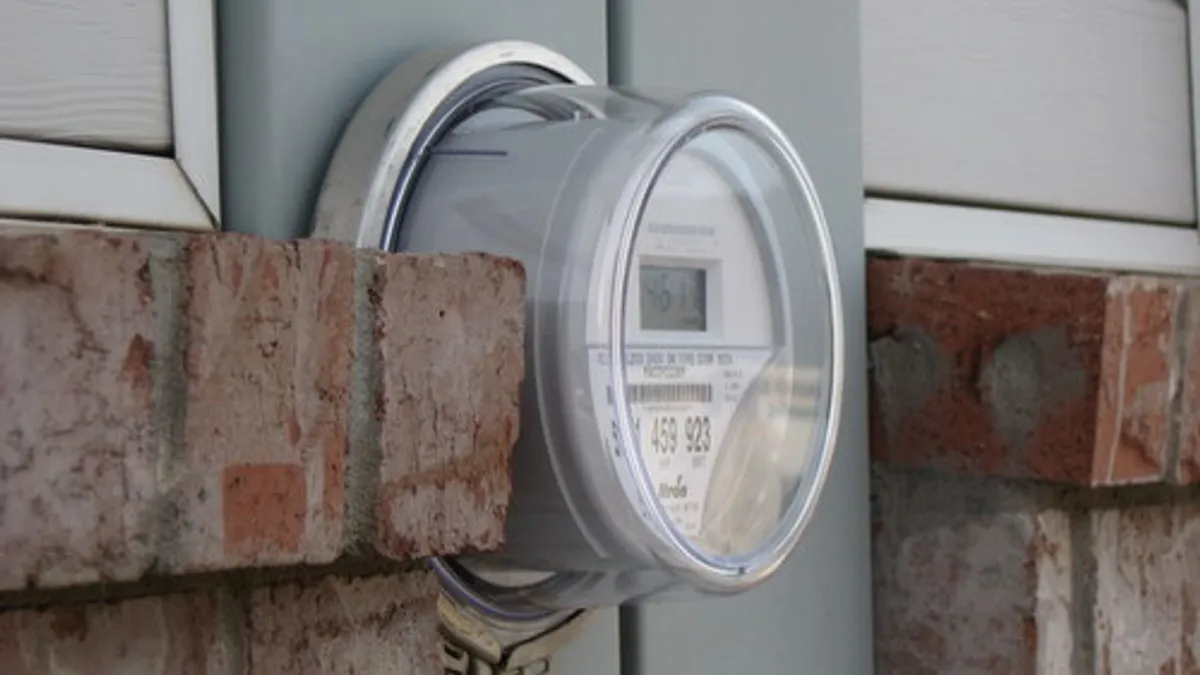Dive Brief:
- When the utility owned by the city of Naperville, Ill., takes readings from its smart meters, it is a "warrantless search," albeit a "reasonable search," a three-judge panel from the United States Court of Appeals for the Seventh Circuit decided last week.
- A citizen group called Naperville Smart Meter Awareness (NSMA) sued in 2011 to block the city's advanced metering program, but rollout still began in 2012. The case was dismissed in 2015 and appealed last year.
- The group maintained that due to the information which can be gleaned from smart meter data, the advanced metering constituted an unreasonable search and a violation of the state's constitution and the Fourth Amendment of the U.S. Constitution. The court disagreed, but cautioned that its decision was based on a number of factors, including the 15-minute intervals at which the data is collected.
Dive Insight:
At a time when grid modernization efforts and advanced meter rollouts are colliding with personal privacy and data security issues, Naperville Smart Meter Awareness v. City of Naperville is a case to consider. The court's determination that smart meter readings constitute a search that does not require a warrant is important — as are the court's warnings and caveats.
Privacy advocates claim the meter readings constitute an unreasonable search. They warn the data smart meters collect can be used to determine a host of information, including: when the home is vacant; sleeping and eating routines; what specific appliances are in the home and when they are used; and charging data for plug-in vehicles that can be used to identify travel routines and history.
The Seventh Circuit panel disagreed, concluding that the search was "reasonable" because the meters allow utilities to reduce costs, provide cheaper power and encourage efficiency, while helping keep the grid stable.
"The search is unrelated to law enforcement, is minimally invasive, and presents little risk of corollary criminal consequences," Judge Michael Kanne wrote for the panel. "We caution, however, that our holding depends on the particular circumstances of this case. Were a city to collect the data at shorter intervals, our conclusion could change."
Kanne added the court's decision could also change "if the data was more easily accessible to law enforcement or other city officials outside the utility."
Smart meters have faced a small but vocal opposition for years, over concerns that range from health and safety to privacy concerns.
The American Public Power Association issued a statement in support of Naperville, and filed a friend-of-the-court brief in the case, along with the Edison Electric Institute and the National Rural Electric Cooperative Association.
"Smart meters have become an important tool in the broader effort to modernize the nation's energy infrastructure and improve U.S. energy efficiency," the three groups wrote in their brief. "Smart meters enable electricity consumers and utilities to monitor and manage electricity use by time of day."
But the amount of information that can be gleaned from a smart meter is extensive, the Seventh Circuit acknowledged, and residents "certainly have a privacy interest in their energy consumption data. ... But its collection — even if routine and frequent — is far less invasive than the prototypical Fourth Amendment search of a home."
The court said it was important that the city conducts the search "with no prosecutorial intent. Employees of the city’s public utility — not law enforcement — collect and review the data."
The case is "a fascinating decision" that leaves open some questions of how to balance smart meter rollout with regard to Fourth Amendment law and precedent, Orin Kerr, a professor at the University of Southern California Gould School of Law, notes on Lawfare Blog.
"Right now, the court says, smart meters are pretty rare, so the government has to be reasonable and balanced and careful with what it does with smart-meter data to make the collective searches reasonable," Kerr wrote. "But after smart meters become common, they'll be in general public use and there will be no limitations on their use. Seems like an odd constitutional framework, but so it goes."















